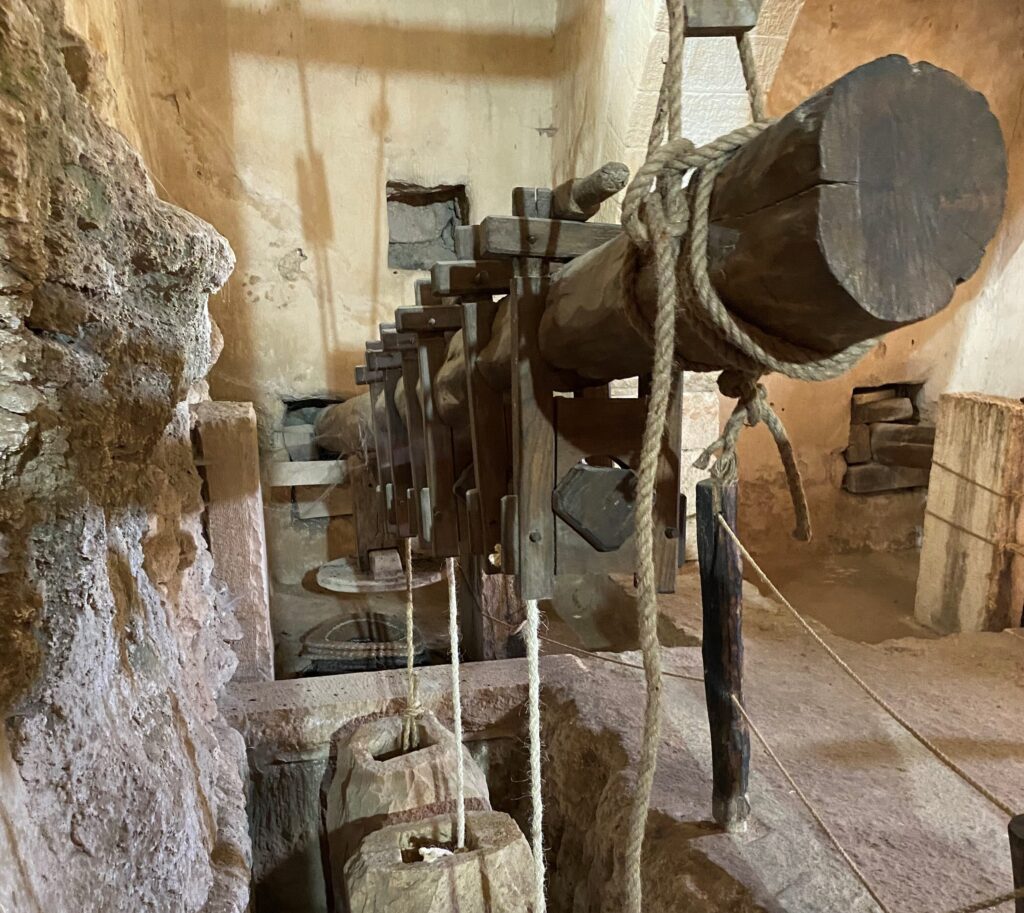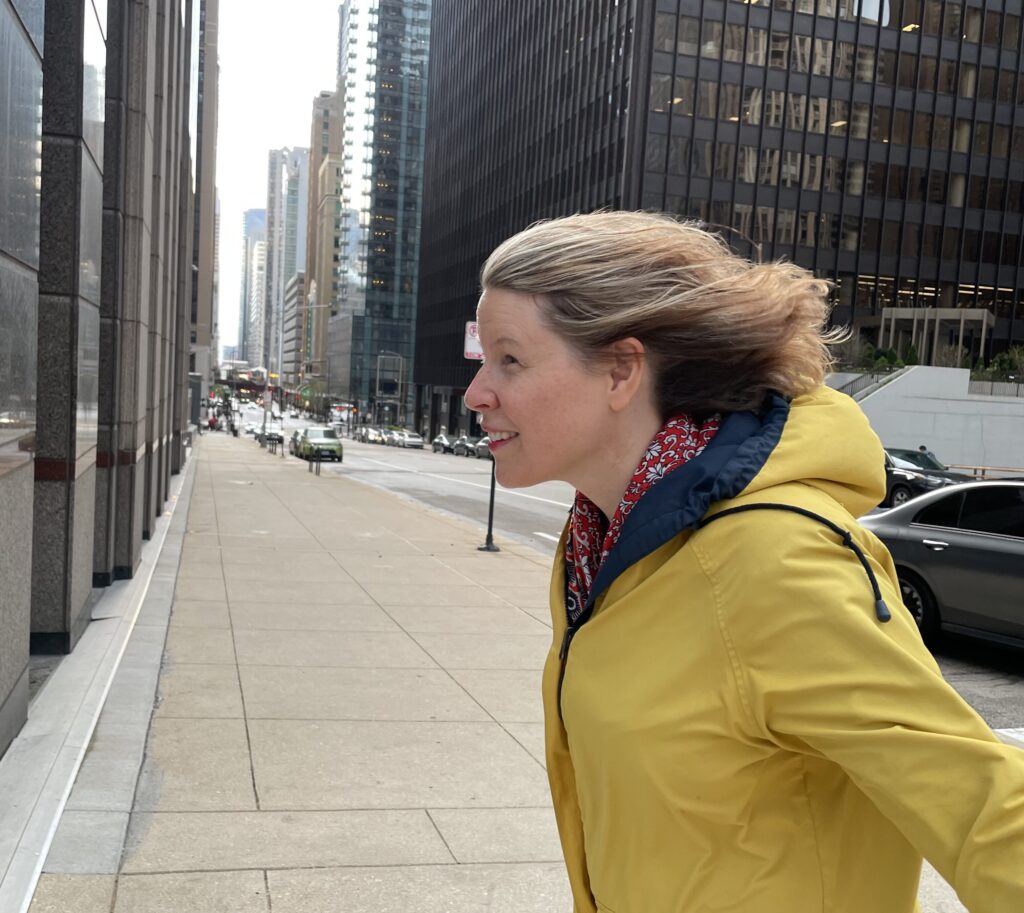True creativity, I feel rather ruefully, would find a way to make an origami boat successfully on screen without needing to be double-jointed and cross-eyed. As we mused on our creations – made to a pattern, made by following instructions, we pondered the age-old question – what is creativity? Simply making something? Or does it require some element of newness, adaptability, imagination, uniqueness? And how might we bring that ever-inventive imagination into the way we do our Messy Church: not just the activities, but bringing creativity of thought into the welcome, the celebration and the meal too? In these lockdown days, we need to extend that to a creativity around whether we try to simply recreate a makeshift form of Messy Church or whether we could imaginatively take the five Messy values and reimagine them for a very different situation?
Some of us are experiencing a feeling of ‘edginess’ at the moment – watchfulness, never relaxing, always waiting for the next unexpected happening. It’s very uncomfortable! I feel like a meerkat, tensely bobbing up and down on the lookout for the next slathering hyena.
It’s some consolation that wiser writers than I have suggested that it’s at the edge that creativity happens. Alan Hirsch in his book The Forgotten Ways (Brazos Press) has a chapter on liminality and communitas, which describes the opportunities and perhaps privilege of being uncomfortably on the edge. He is emphatic that it’s at the edge where life happens and where true fellowship is formed, rather than in snug, cosy, safe stability or ‘equilibrium’. He argues that ‘equilibrium is in fact a shortcut to death, as a living being in that state is far less able to adapt and deal with threat and danger. In the face of a threat or when galvanised by compelling opportunity, living things move toward the edge of chaos… toward a condition of openness and creativity, towards entrepreneurialism, openness and creativity’ (p. 176).
It’s no coincidence that the risen Jesus met his disciples on the beach, that liminal space between two elements, symbolising the end of one way of life, which Peter had tried to return to briefly by going back to his fishing business, and the start of another. It must have been strange to sail back home after that breakfast without Jesus but with 153 fish in the nets and, even with that commercial success, leave the boats behind yet again.
No wonder so many of us feel exhausted! Our edges have moved and we’re organising ourselves to seize the opportunities of a new edge. That’s why being centred on Christ is another of our Messy values. He’s the still centre when everything else shifts alarmingly. He moves with us, before us, ahead of us – he even takes us to new edges when we become comfortable. Anything else as our centre – church, security, stable family life – however worthy, can (arguably should and certainly is doing at the moment) shift.
Creativity is much more than making a thing out of glue and glitter. Hirsch finishes his chapter: ‘the ship is safest when it is in port. But that’s not what ships are made for’ (p. 186).
Martyn Payne reminded me of a prayer we used in the minibook Family Prayer Time:
Disturb us, Lord, when we are too well pleased with ourselves,When our dreams have come true because we have dreamed too little,When we arrived safely because we sailed too close to the shore.Disturb us, Lord, when with the abundance of things we possess, we have lost our thirst for the waters of life;Having fallen in love with life, we have ceased to dream of eternity,And in our efforts to build a new earth, we have allowed our vision of the new Heaven to dim. Disturb us, Lord, to dare more boldly, to venture on wider seas where storms will show your mastery; where losing sight of land, we shall find the stars.We ask You to push back the horizons of our hopes; and to push into the future in strength, courage, hope, and love.(Prayer attributed to Sir Francis Drake)
As ever, people’s comments during the Facebook Lives on this theme add valuable extra reflection. Julie Swann reminded us of Isaiah 43:19: ‘See, I am doing a new thing! Now it springs up; do you not perceive it? I am making a way in the wilderness and streams in the wasteland.’ Lorna Hutcheon recommended Canoeing the Mountains by Ted Bolsinger. Roberta Egli quoted from Richard Rohr’s devotion today: ‘Dwelling in unsettling liminal space… we are led to draw on resources and possibilities we may not have tapped before, in the unknown space between here and there, younger and older, past and future, life happens.’
You may also like

Reciprocity
14th May 2024Definition: The practice of exchanging things with others for mutual benefit. Last week I joined, via Zoom, a discussion on Being Intergenerational,

Eco-friendly Messy Church
8th Apr 2024A core value of Messy Church is creativity, which often means that we use loads of ‘stuff’ as we learn, rememb...

Under Pressure
26th Mar 2024They went to a place called Gethsemane, and Jesus said to his disciples, ‘Sit here while I pray.’ He took Peter, James and John along with him, and he began to be deeply distressed and troubled. ‘My soul is overwhelmed with sorrow to the point of death,’ he said to them. ‘Stay here and keep watch.’ Mark 14:32-35 (NIV).


